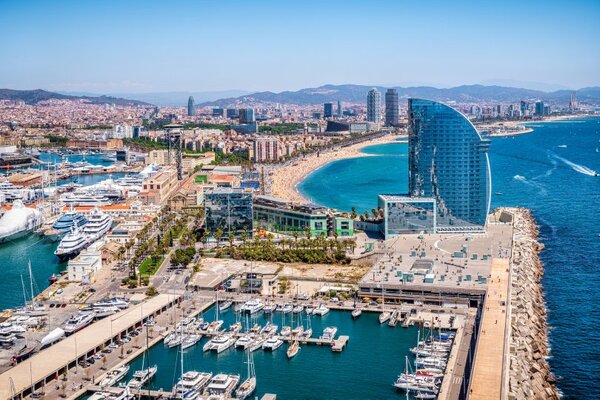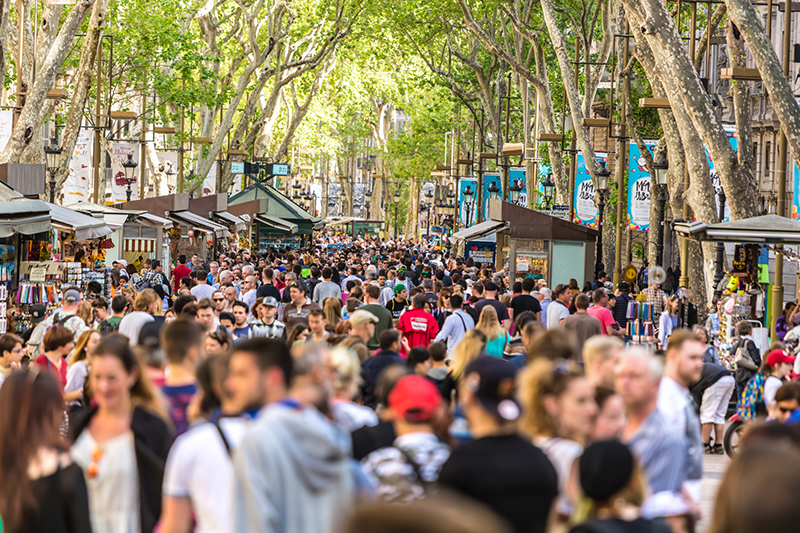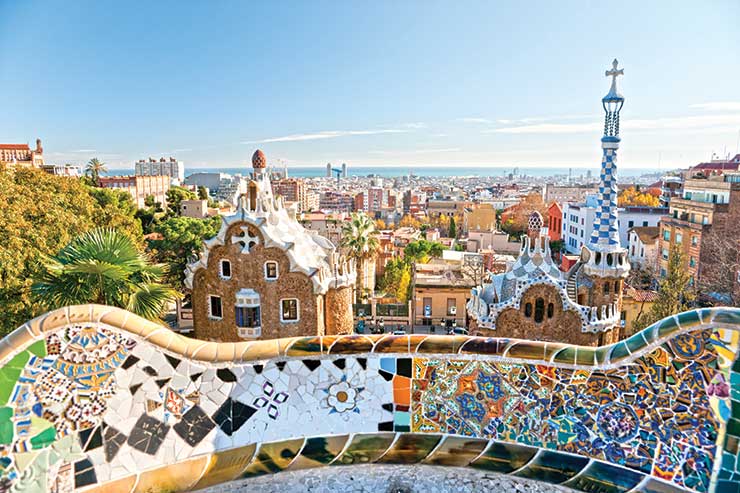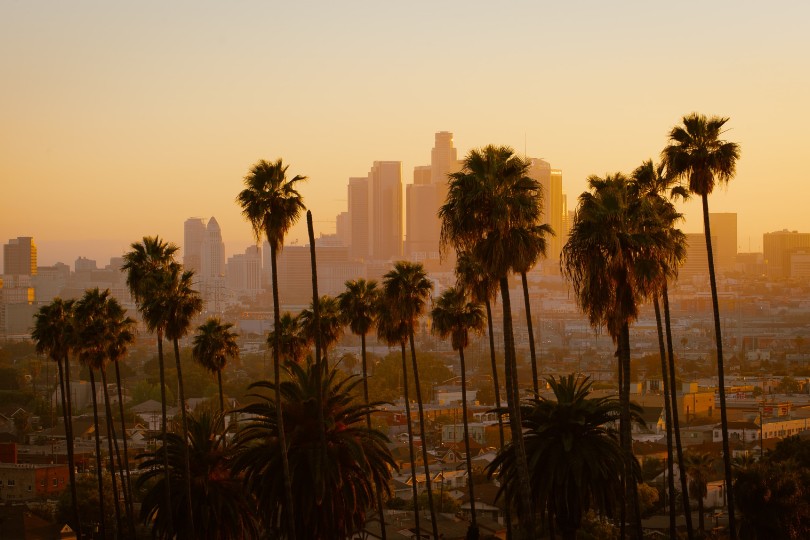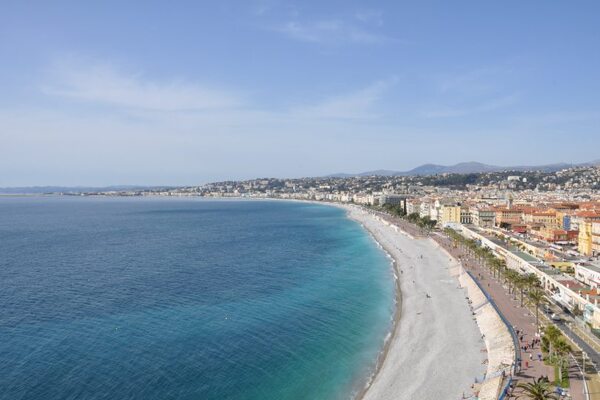‘Overtourism didn't happen overnight in Barcelona’: so what are the solutions?
With its architectural marvels, fine cuisine and, until recently, all-conquering football team, Barcelona has become not just one of Europe’s, but the world’s most popular tourist destinations.
Some 12.2 million tourists visited the city last year according to data from the Tourism Observatory of Barcelona, down from 13.9 million in 2019, although tourism spend in the city grew to €9.6 billion, up by nearly 15% compared with pre-Covid levels.
Vueling, Barcelona’s El Prat airport’s biggest carrier, observes that besides being an attractive destination in its own right, the city – which counts the UK as its third largest international source market – is a gateway to the wider Catalonia region, not to mention the rest of Spain. It already operates eight flights a day to the city from Gatwick, and will launch a twice-daily Heathrow service in April.
This vast popularity and utility invariably comes at a price, although airlift is far from the only contributor to concerns that Barcelona is becoming – or has already become – heavily overtouristed.
The city’s port was named Europe’s most polluted in 2019 after welcoming more than three million cruise passengers, leading Gala Pin – then a city councillor – to compare visitors to “locusts”. Cruise arrivals grew to nearly 3.6 million last year, a new record.
Residents, meanwhile, have been beset by housing shortages and sky-high rents as more and more city properties are turned over to tourism accommodation and short-term lets. Fed-up locals have vented their frustration by graffitiing slogans like "tourists go away" and "tourism kills" on centuries-old buildings in the Rambla or in the city’s Gothic quarter.
"We don’t accept the use of ‘overtourism’ because it makes it seem like the phenomenon emerged spontaneously when instead it’s a product of people serving their own interests at the expense of the common good,” activists from the Assemblea de Barris pel Deicreixement Turistic – the Neighbourhood Assembly for Tourist Decline – told TTG.
"We prefer using ‘touristisation’ to define a process in which territories are exploited and undermined by their dependency on tourism.”
What’s being done?
Over the past few years, local authorities have enacted some measures to curb overtourism; former mayor Ada Colau restricted the number of licences available for short-term lets, opposed plans to expand El Prat airport, and increased the city’s daily tourist tax.
Her successor, Jaume Collboni, last October banned cruise ships from calling at the Muelle Barcelona Norte and the World Trade Centre docks, a mile away from the Gothic quarter. Instead, cruises must now dock at the Moll d’Adossat pier – a 30-minute bus ride from the historic centre.
Clia put a positive spin on the decision, claiming the move would allow passengers to enjoy the benefits of a new, more modern terminal, while reducing congestion in the city centre.
Efforts are under way too to ease the pressure on Barcelona by promoting the wider Catalonia region as a desirable destination to more widely disperse tourists.
"Tourists arrive in Barcelona because it’s still a hook, but they want to see more areas,” Aicard Guinovart, director of the Catalonia Tourist Board, told TTG. “That’s why we created the Grand Tour of Catalonia, a circular road trip highlighting the 72 most important places to visit inside and outside of Barcelona."
Vueling, meanwhile, says it has embarked on a ‘deseasonalisation’ strategy, which aims – in partnership with local tourist boards – to encourage travellers to visit "outside of the core tourist seasons”.
Protecting residents
These measures, though, have failed to satisfy Barcelona’s Neighbourhood Assembly for Tourist Decline, whose activists claim overtourism is still having a significant impact on the city and its residents, fuelling gentrification which they say is resulting in the disappearance of local shops and amenities.
Public health is another concern owing to steady increases in road, air and maritime traffic. City council data reveals the majority of Barcelona’s inhabitants are being exposed to higher-than-recommended levels of particulate matter, while more than two-thirds (68%) are breathing higher levels of nitrogen dioxide.
The assembly told TTG it was concerned about "the constant worsening of residents' living conditions" for the benefit of the city's transient population.
However, its activists aren't calling for tourist numbers to be capped, stressing the issues are more nuanced than just saying who can and can't come to the city.
"It’s about not using public money to fund tourism and about making the industry pay for all the public services it exploits – public transport, health, safety."
‘Beholden on us’
So what can agents, operators and the wider travel trade here in the UK do to ease the situation? One option is to help clients make more responsible travel choices when heading to destinations like Barcelona.
"We encourage everyone we send to interact as much as possible with local people and businesses, whether that's having a local guide for a day or dining at restaurants off the beaten track,” Kirker Holidays marketing manager Patrick Millar told TTG.
"It’s about being sensitive, maybe visiting outside of the normal peak season. Not only is it beneficial for the destination, it’s actually beneficial for travellers – it’s a virtuous cycle.”
Millar said it was the trade's responsibility to educate customers. "We know the destinations, the challenges they face and what they need from tourism,” he continued. “It’s beholden on us to help people to make the right choices for them.”
Murray Travel's Carla Murdoch is one of TTG's Sustainable Travel Ambassadors. She says as a year-round destination, Barcelona is better enjoyed during off peak periods when the city is quieter. "Getting a local guide for a walking tour away from the usual areas is a great way to discover hidden gems and local neighbourhoods – and the food is more authentic," she advises.
Liam Caffrey from Birkenhead agency Perfect Getaways is another of TTG's Sustainable Travel Ambassadors. His advice to clients is to take day trips to nearby towns and spend time taking in the city's parks and green spaces. "Barcelona is a very walkable place and so I strongly advise customers to walk around and go to parks like Montjuic or Guell as they don’t cost the environment anything."
Med-focused tour operator Typically Holidays, meanwhile, focuses on promoting small, family-run hotels and businesses. “When you go to a hotel with 500 rooms, you don’t get the authentic feel you get going to a family-run hotel that has 45 rooms," managing director Daniele Broccoli told TTG. "By day two, the hotelier knows your face – it’s more authentic."
Broccoli added there were family-run properties in the centre of Barcelona, not just in the suburbs. “There are still a lot of authentic properties in the centre of these cities,” he said. “If you look at our [Barcelona] brochure, they’re all small, family-run hotels.”
With Barcelona riding a wave of popularity, it's hard to envisage tourists shunning the city any time soon. But there's no doubt a better balance can be struck between the city's desire to remain attractive to visitors and the needs of residents – one that sees agents help by encouraging their clients to do their bit to ensure tourism remains a force for good.
